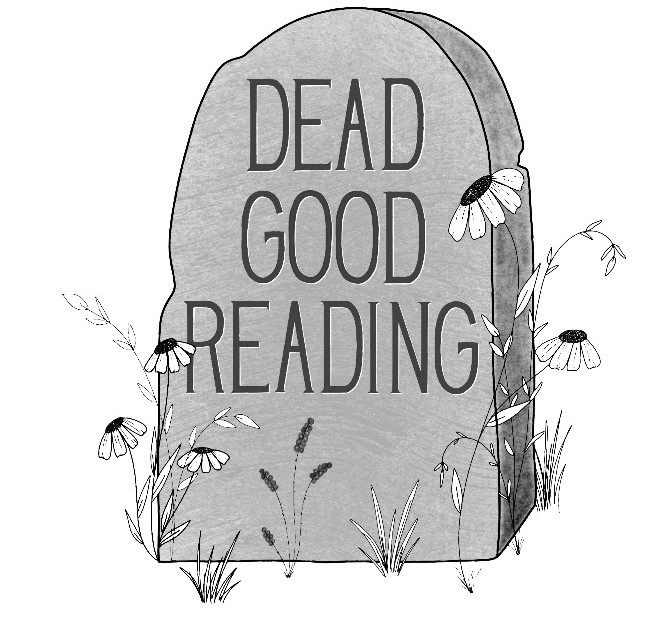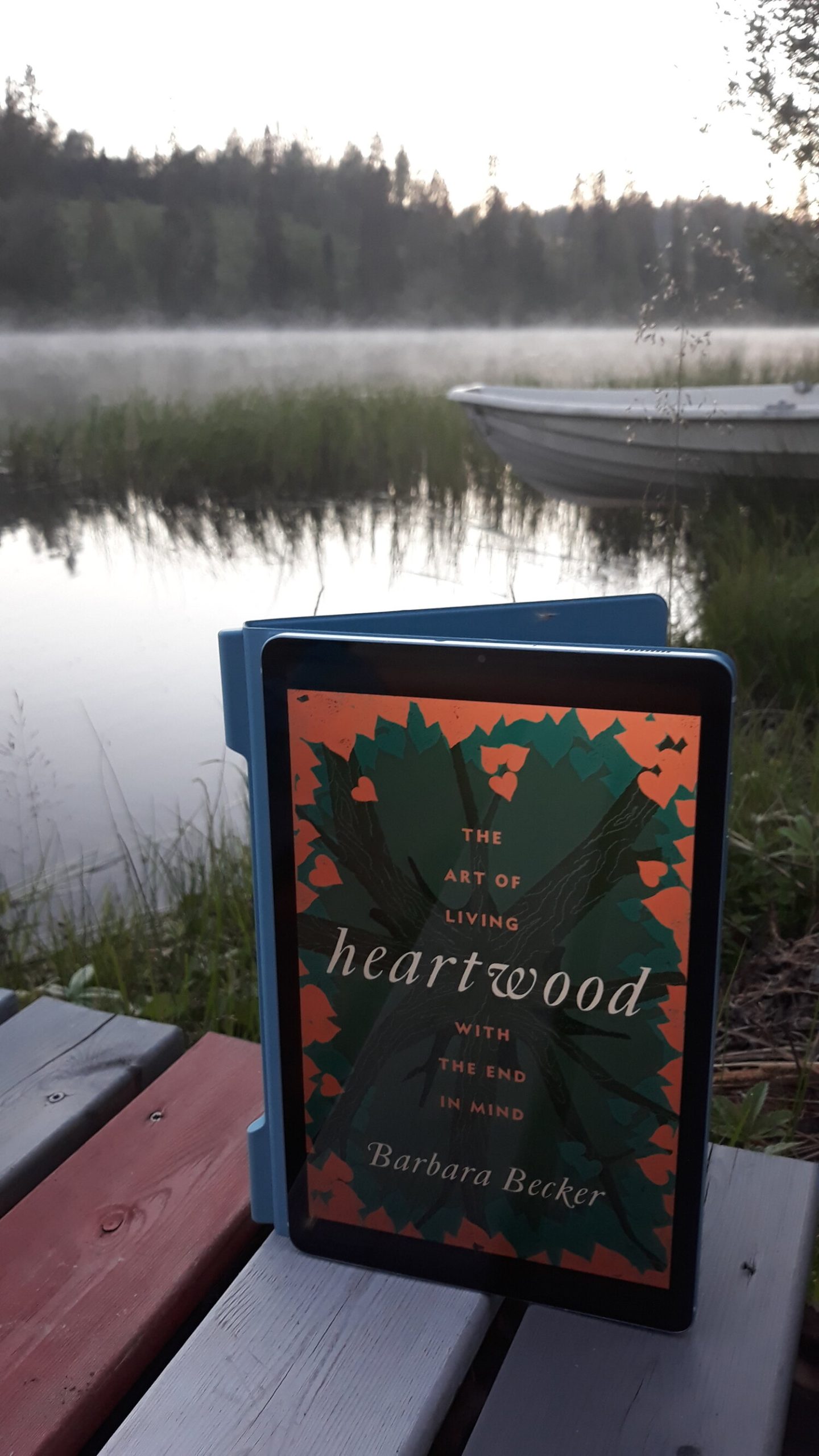In this week’s blog we turn our attention to another memoir, as Barbara Becker has kindly sent me a digital copy of her book Heartwood. The Art of Living with the end in Mind. This has taught me, amongst more profound things, that it is much more difficult to take a good picture of an e-book than an actual physical book, as book books don’t tend to reflect light that much. I do hope readers appreciate the amount of mosquito bites I endured in order to take the picture. But yes, I could have chosen not to take a picture next to a lake.
Becker centres her memoir around the notion of heartwood, and uses this part of trees as a beautiful metaphor to describe the place dead people hold in people’s everyday life:
“If you have the chance to examine the cross section of a tree, you will notice a central core, darker than the sapwood surrounding it. Called heartwood, this supporting pillar no longer participates in the life process of a tree – transporting and storing water and nutrients. Although dead, heartwood will not decay or lose its sturdiness while the outer, living rings of newer growth sustain it. In the perfect ecology of a tree, the dead become the heart of the living, and the living nourish the enduring essence of the dead”
— Heartwood. Page: xiii
This notion of heartwood reminds me of Lois Tonkin’s model of grief which suggests that feelings of grief do not shrink over time, instead people’s lives grow bigger around it. I am not sure if heartwood in trees grows over time, or stays the same size, but in any case, this poetic and clever comparison with an element found in nature will surely provide comfort to many people, as we all carry our own heartwood inside.
Each chapter represents this heartwood and centres around people important to Becker. The memoir touches on pregnancy loss, the loss of parents and her experience as a hospice volunteer. The book shows that whilst someone might be very familiar with death, dying and the end of life, this relationship is an ongoing journey and a never-ending learning curve.
The first few chapters I thought it was great that each chapter honoured a person, and specifically their dying journey. But after a couple of chapters I started to get worried the moment I read the chapter title thinking ‘O dear, how will this person die?’. I was bracing myself, and was very conscious of this visceral experience. This feeling caught me by surprise as at first I found this format really clever, similar to people chronologizing their life story to, for example, the houses they have lived in, but instead of houses they are important people that died. I was glad that Becker did not use this format throughout, but instead highlights the heartwood that others carry in them, and how we should be mindful that every person we meet will carry losses we might never become aware of. I still don’t have an answer on why I started to feel uncomfortable, and it is in no means a critique to Becker, as from the get go I was aware that this book was fundamentally about death and dying (as this obviously is the main theme of this blog).
It speaks to Becker’s writing that in just a few pages she sketches these wonderful people, and it is just heart breaking as a reader to read how they died a few pages later. It makes me wish I had known these people, or knew more about them. The chapter on Ann also provided an interesting crossover with another book I read recently, namely Michelle Obama’s book Becoming. Both authors reflect on the life and death of Ann but reading these two accounts shows how we all have different experiences and memories of the same person as it wasn’t until Becker reveals that Ann is Barack Obama’s mother that I made the link between the Anns described in the two books. I personally love these kind of coincidences; the books you choose to read are sometimes intimately linked, when the decision to read them seems random.
Heartwood is a beautifully written, kind account of the ranges of loss, love, and death a person can encounter in their lives. It offers glimpses of different religions and beliefs, and new terminology I would have loved to have read more about. For example, the notion of ‘holding space’ for someone is used as if the meaning of this is self-evident and I am now very keen to learn more about (any suggestions on books on this topic, please leave a comment below!) But in my opinion, a book that encourages further study and prompts reading about other things, is a book well-worth reading!
For more information on Barbara Becker, visit her website.


Leave a Reply